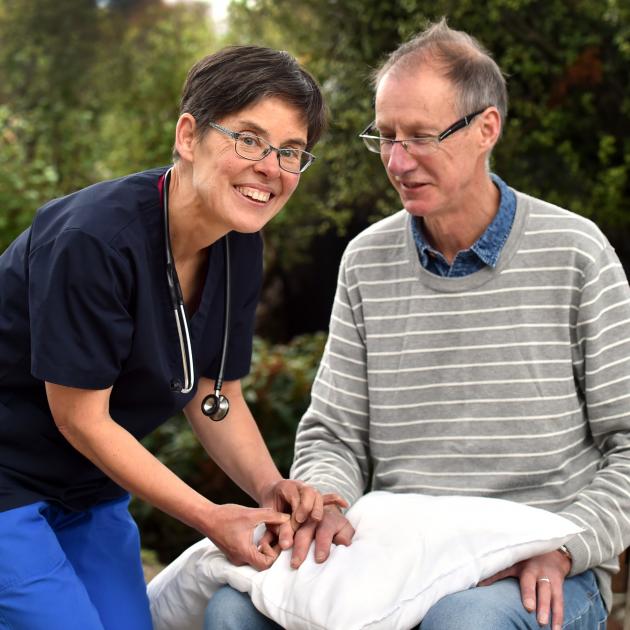
Since teaching at the University of Otago went online due to Covid-19 Alert Level 4 restrictions, Dr Barnett has been filming instructional clips for her second and third-year medical skills students about how to interact with patients.
With the usual medical actors she would normally use for these fictional consultations not deemed an essential service, Dr Barnett’s husband Alan Somerville has stepped up to be poked, prodded and probed, all in the name of education.
"Normally, I would have a willing student I could use to show how to examine a hand or a back, so I had to rope in the only living person that I’ve got — the dog doesn’t quite cut the mustard really."
Dr Barnett, a GP with Broadway Medical Centre for almost 20 years, has taught part-time at the University of Otago for some years.
She has now accepted a full-time teaching role as convener of early learning, medical skills, but the Covid-109 pandemic meant she has been unable to properly farewell colleagues and patients.
However, she was confident Broadway clinicians would be able to look after her former patients.
"I’m just a little piece of this very big thing."
Dr Barnett will be bringing decades of general practice experience to her new role.
"We start by teaching them how you might talk to a patient, how you might examine them, and how you might use your brain to interpret that information," Dr Barnett said.
"We start at a very basic level and then build on that. We start learning about arms and legs and then start learning about hearts and then tummies and progress around the body from there; it’s a very structured way of teaching."
Students are taught a patient’s perspective is paramount, and that if they fail to consider that appropriately then their consultation will fail.
"I am on a complaints committee about medical practice and it’s not often what the doctor did in terms of what they prescribed and what they diagnosed, but the problem is that they did not understand what was going on with the patient."
While Broadway was an urban practice it was also a long-established one, meaning several generations of the same family had come through its doors, she said.
"Patients from all over Dunedin came here, partly because doctors here delivered babies, and that was quite a drawcard for new people to the city," Dr Barnett said.
"I have patients who I saw as babies who have come back now as adults — it’s quite hard to leave it
"It’s a privilege to have been part of so many people’s lives."
